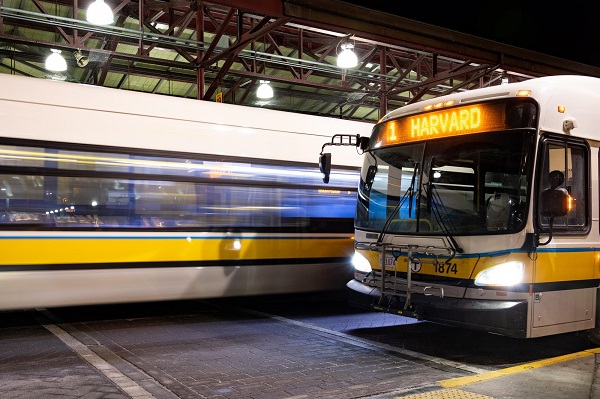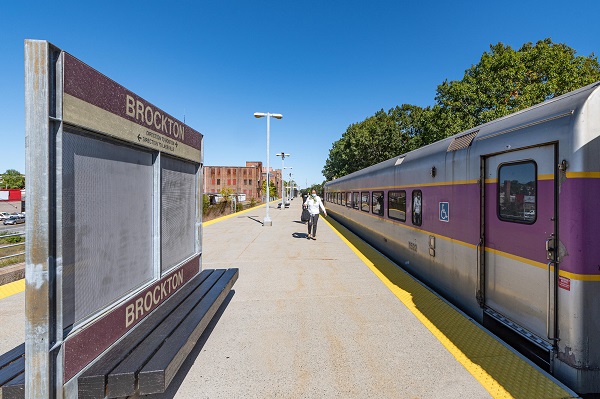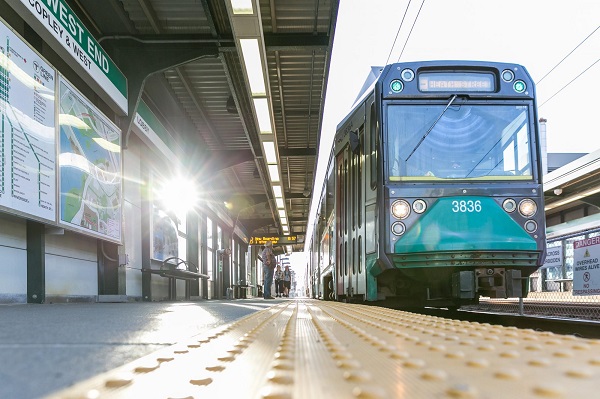MBTA cuts threaten more than 800 jobs and would have outsized impact on Black workers, communities hard-hit
by COVID-19

BOSTON — The MBTA could eliminate over 800 jobs if the FMCB’s service and staff cuts proposal is passed, a new study finds. These job losses would have a negative impact on regional employment and a disproportionate impact on Black workers, including in communities where COVID-19 rates are already high, according to a new report by the Public Transit Public Good coalition.
On Monday, November 9, 2020, the MBTA released a detailed proposal for far-reaching and devastating service cuts that MBTA executives claimed were needed to address an anticipated revenue shortfall in its FY-2022 budget. Groups representing riders and workers, however, have labeled the cuts as reckless and premature, as given the prospects of federal relief funding and a ridership increase after COVID-19 vaccines become available.
The MBTA Advisory Board released a report that found numbers presented by the MBTA to be unnecessarily cautious and recommends that the FMCB not authorize any major service changes right now.

While MBTA executives released information on select aspects of their proposed service and programmatic cuts, details regarding the number and kind of jobs to be eliminated have not been widely shared with the public. To fill that gap, the new report from the Public Transit Public Good coalition provides estimates of job losses that are likely to occur if the cuts are implemented as planned.
“These are unprecedented times for all workers,” said Jim Evers, President, Boston Carmen’s Union, Local 589. “For the MBTA to pull the rug out from under hundreds of workers and their families while the state is still reeling from COVID-19 is unconscionable.”
The report also examined the potential impacts of job loss from MBTA cuts. The proposed cuts would worsen unemployment and would have an especially harsh impact on workers who live in communities where COVID-19 rates are already high. They would have a particularly negative impact on families and communities of color already disproportionately threatened by COVID-19.
For example, many of the Carmen’s Union members, who drive MBTA buses and trains, live in communities with high rates of COVID-19 infections. Approximately 67% live in municipalities or Boston neighborhoods with current COVID-19 positive test rates of 4% or higher. Of those, more than 1,300 live in communities where COVID-19 rates surpass 6%.
MBTA operators and drivers are a racially diverse group: 60.1% are non-white and almost 49.1% are Black. The largest group of Carmen’s Union members (about 13%) live in Dorchester, where current cumulative positivity rates are at 11.6% and 11.5%, some of the highest in the city.
“These neighborhoods are home to some of Boston’s most vulnerable residents,” said Dwaign Tyndal, Executive Director, Alternatives for Community and Environment. “Dorchester and Roxbury are among neighborhoods with the highest populations of people of color, recent immigrants and people with low-to-moderate income. Taking away well-paying jobs from families here will cause a lot of pain.”
“Gutting the MBTA’s budget and forcing hundreds of workers onto unemployment will worsen economic opportunity at a time when the state’s economy is already struggling,” said Mike Vartabedian, Assistant Directing Business Representative of the International Association of Machinists and Aerospace Workers (IAM), District 15.

“Any savings from job losses would be offset by Unemployment Insurance obligations of the MBTA and the Commonwealth,” noted Lee Matsueda, Executive Director of Community Labor United and a member of the Public Transit Public Good coalition.
In the absence of public information from the MBTA, the report used publicly available information from FMCB meetings, public document requests from the MBTA, and other public sources to estimate the number of jobs that would be lost across the system, including direct employees and employees of companies contracted by the MBTA.
The report finds that:
Bus, light and heavy rail cuts
Cuts to the MBTA-operated systems of buses, and the Orange, Red, Green and Blue lines include decreasing frequency of service, ending service after midnight, eliminating 25 bus routes, shortening or consolidating 19 bus routes, eliminating E line service past Brigham Circle.
Estimate of jobs lost: 460
Commuter rail
The MBTA contracts commuter rail operations to Keolis. Cuts to Commuter rail include decreasing frequency of service, cutting all weekend service, ending service after 9pm on all lines except Fairmount (which will end by 10pm), closing six stations.
Estimate of jobs lost: 130
Ferry
The MBTA contracts ferry operations to Boston Harbor Cruises. Proposed cuts call for an end to all ferry service.
Estimate of jobs lost: 140
Parking
The MBTA contracts parking operations to Republic Parking System to manage and staff 100 parking facilities. Republic provides payment collection and enforcement, maintenance and snow removal. The MBTA has provided little public information on changes to its parking contract, but has described the changes as “using technology to reduce overhead costs.”
Estimate of jobs lost: 86
Transit Ambassadors (Station Customer Service)
The MBTA contracts in-station customer service to Block by Block. Proposed cuts would eliminate about 11% of staffing across stations.
Estimate of jobs lost: 18
Public Transit Public Good is a partnership of transit workers and riders throughout Massachusetts fighting for the future of public transit. Community Labor United convenes PTPG. Visit publictransitpublicgood.org to learn more.
